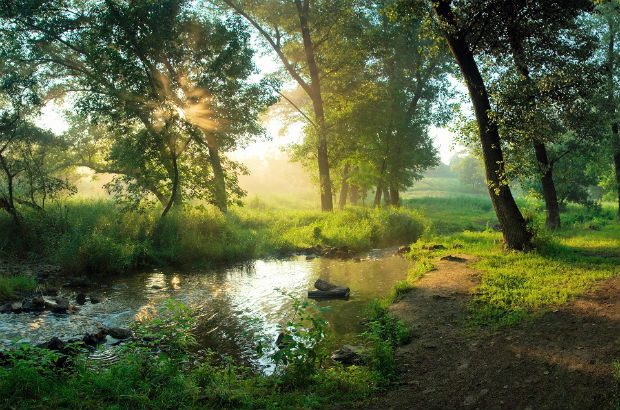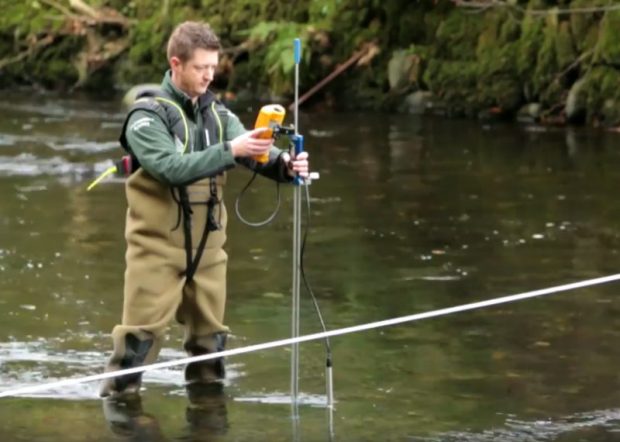
If you live in the south east of England you might have noticed that there hasn’t been a lot of rain recently.
Low amounts of rainfall over a prolonged period can cause problems for the environment and even future water supply issues. Environment Agency teams are working to mitigate these risks together with a range of partners – and everyone has a part to play.
Water in 2017
Normally excess winter rainfall is stored in reservoirs and as groundwater which people use in the summer and it gets replenished the following winter. Deep groundwater supplies take years to be gradually refilled or depleted.
Last winter (2016-2017) there was less rainfall than normal in the south east of England so spring began with groundwater supplies and some reservoirs below normal levels. Our plans to cope with dry weather and drought kicked in and together with water companies and partner organisations we have managed the amount of water in the environment and water supplies carefully. This early action successfully avoided the need for any restrictions to household water use and in 2017 we didn’t move into official drought status.
The wet summer helped river flows, and went some way to addressing the low groundwater situation but most of the rain that fell was used by plants or evaporated so didn’t provide the volume needed to replenish supplies to levels needed across the south east.
It’s been a tale of two halves. While the south east was drier than normal, in other parts of the country, rainfall has been higher than average, particularly in the north-west. Due to the time it takes to refill supplies, the UK’s variable weather and its differing geology it is possible to have water shortages at the same time as localised flooding.
It is not uncommon to have low groundwater supplies before they are replenished in the winter but there has been significantly less rainfall than expected in the south and east during October and November.
What’s needed?
Rain. We need higher than average rainfall across the south east this winter to refill groundwater supplies, top up reservoirs and keep rivers healthy for wildlife.
Environment Agency hydrology experts continuously monitor river flows and groundwater to see how much water there is and plan accordingly. We look at the natural fluctuations, long term trends and plan for possible future scenarios. A second dry winter would lead to some challenges in 2018 to balance the water needs of people, businesses and the environment.

What’s happening?
The Environment Agency is working actively with water companies, businesses and farmers. Throughout the year our officers have responded on the ground to minimise any potential impacts of low river flows like limiting the amount of water that can be taken from a river or rescuing fish struggling to get upstream. We’re better prepared with more of our staff trained to support us during an incident, and our monitoring and technology has improved significantly.
Water companies play a key role and we will ensure they take actions according to their plans to protect water supplies. As part of this they are currently stepping up actions to reduce water use which includes a range of activities on the ground. They are also letting customers know how they can help by using water wisely, not only now but in the long term.
There are a range of partners involved in this work. Our Chief Executive, Sir James Bevan, has met with a wide variety of organisations including: water companies, Ofwat, Consumer Council for Water, the National Farmers Union and environmental groups like the Canal and Rivers Trust, to discuss measures to protect and preserve supplies.
How can you help?
Although the current situation could be rectified with the right amount of rain in affected areas over the coming months, we want everyone to help.
If we all save a little bit of water now this may help avoid restrictions in the summer. You can do this by looking at the way you use water in your home and at work and making sure you are being as efficient as possible. If you live in affected areas you will receive advice from your water company.
Do please follow their guidance – you are saving money, preserving water for use next year and you are helping to protect the environment.
Find out more about what you can do from: Water UK, Thames Water, Anglian Water, Southern Water and Affinity Water.
Also when you are next to a river, do keep an eye on the wildlife it supports. If you see fish gulping for air or something that does not look normal this could because of reduced river flows or pollution so do please call our incident hotline on 0800 80 70 60.

Leave a comment